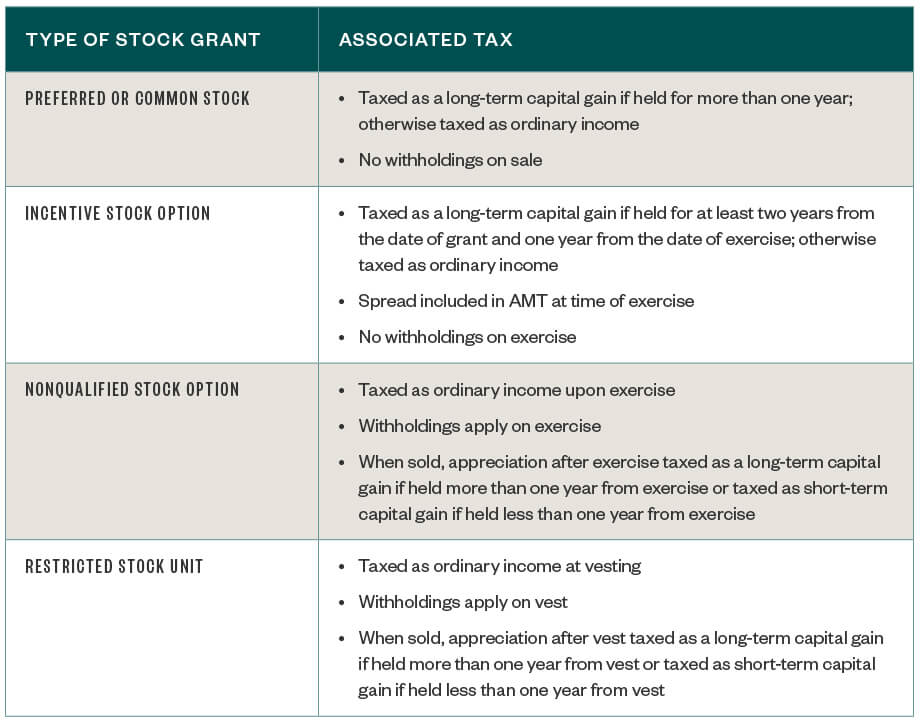Your employer will include that amount on your W-2, Box 1. The difference between the option price and the FMV when you exercised your option is included in your W-2 income. The basis of the stock is the FMV of the stock on the date you exercised the options.
Non-Qualified Stock Options: Basics Features and Taxation
You can often do a paperless transaction in which you exercise your NQSOs and sell the stock at the same time. Does the IRS consider a life insurance payout part of your taxable income? Generally, a wash sale is what occurs when you sell securities at a loss and buy the same shares within 30 days before or after the sale date.
When the new Option rules are in effect, employers will be able to control the extent to which they may take a deduction in respect of Options granted. In this case, employers may be entitled to a full deduction in respect of the issued securities. Employers should consider the tax effectiveness of Option plans as well as other compensation plans, such as stock options not governed by section 7 of the Tax Act, restricted share units RSUs , deferred share units DSUs , stock appreciation rights SARs , performance securities and employee profit share plans EPSPs.
Unsolicited emails and other information sent to Dentons will not be considered confidential, may be disclosed to others, may not receive a response, and do not create a lawyer-client relationship. If you are not already a client of Dentons, please do not send us any confidential information.
Incentive Stock Options Checklist
To proceed, please click Accept. Upcoming changes to the taxation of certain employee stock options. Home Insights Upcoming changes to the taxation of certain employee stock options. Regional Capabilities:.
Benefits of Non-Qualified Stock Options
Example Ms. Working with a financial advisor will help you determine the right approach for you and ensure that you aren't needlessly losing your investment—to taxes or otherwise. This information is not intended to be a substitute for specific individualized tax advice. We suggest that you discuss your specific tax issues with a qualified tax advisor. He is well versed in all areas of wealth management but specializes in taxation and real estate.
- company giving stock options.
- Incentive Stock Options Versus Non-Qualified Stock Options!
- partner instaforex indonesia.
- Primary Sidebar;
- Topic No. Stock Options | Internal Revenue Service?
- Non-Qualified Stock Options Taxation!
Tim shares his expertise through coaching team members, speaking engagements and client activities. He enjoys helping others and the community through his involvement with the Volunteer Income Tax Assistance program and the Financial Planning Association. Read More. Contact Us. Phone: Email: info wealthenhancement.

By entering, you certify that you are a resident of one of these states. All information herein has been prepared solely for information purposes, and it is not an offer to buy or sell, or a solicitation of an offer to buy or sell any security. Hear about us on Radio or TV? Client Access. Request a Meeting.
Resource Library Search. Share This.
Incentive Stock Options Checklist | Practical Law
Exercise : The process of acquiring shares via stock options. Expiration date : The date your stock options expire. You must exercise your options and acquire shares before this date. Grant date : The date the company makes the stock options available to you.
Exercise price a. Bargain element : The difference between the market price of your stock and the exercise price. Capital gains : Profits from the sale of stocks in excess of their original purchase price. When you sell stocks for more than you paid for them, the difference is your capital gain. Vesting period : The period of time after the grant date one must wait before being allowed to exercise a specific number of shares. How Non-Qualified Stock Options Work Typically, a company will grant you stock options, which simply means they are giving you the opportunity to purchase company shares at a specific price during a specific window of time.
How am I taxed once I decide to buy shares?